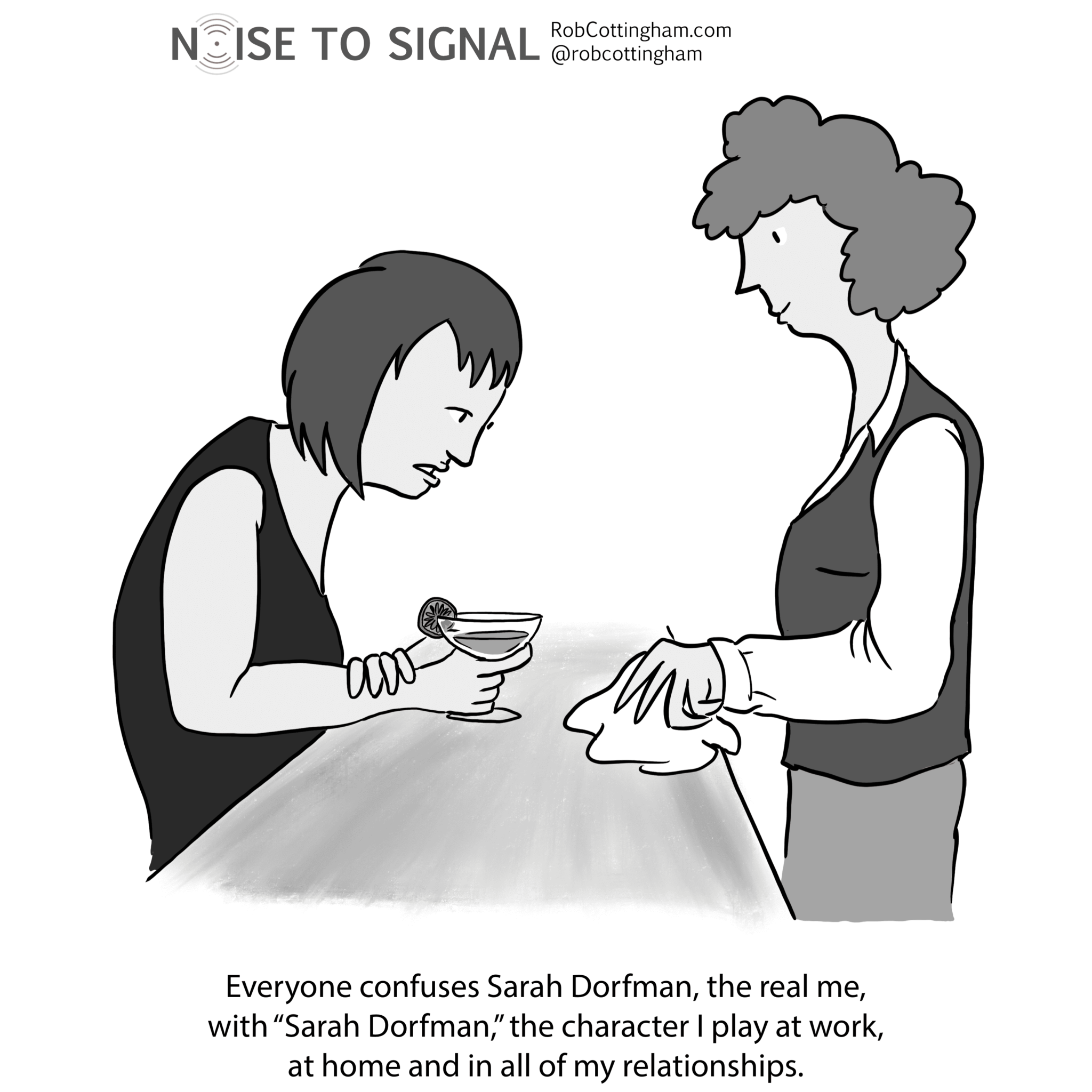We treat “authenticity” like it’s a binary: She’s authentic. He’s inauthentic. But really it’s a spectrum — and I’m guessing you, like me, occupy pretty big swaths of it over the course of any given day. We have to, just to survive the contradictions and minefields the world has in store for us.
But I hope that, although my narrative arc may meander like hell, it still bends toward authenticity. The past year has seen an unrelenting assault on truth and honesty (coming, weirdly enough, in large part from someone whose level of personal authenticity may be unparallelled among presidents: he may really be as much of a lying dick as he seems).
Maybe it’s no coincidence that the word “truthiness” was coined by Stephen Colbert, who was the first person I saw regularly play a character with the same name as theirs — and very little else in common.
These days, the truth needs all the allies it can get. Maybe for most of us, that starts, not with letting it all hang out in unfiltered, damaging Twitter rants, but in recognizing the moments when we’re being less than completely authentic… and understanding why. Being ruthlessly honest with ourselves may let us be more compassionately honest with everyone else.

